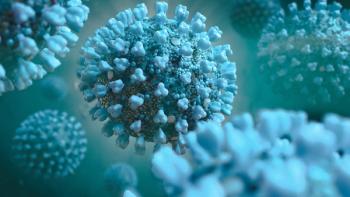
The Immunity Challenge
The year 2005 could turn out to be a tipping point for the immune-enhancer category. Although new research has shown several natural ingredients to be helpful, other studies suggest that some products may be ineffective.
The year 2005 could turn out to be a tipping point for the immune-enhancer category. Although new research has shown several natural ingredients to be helpful, other studies suggest that some products may be ineffective. This article discusses some of the latest research developments.
PROPOLIS AND CURCUMIN
Propolis and curcumin were thrust into the spotlight in 2005, thanks to a $1 million grant awarded to researchers at Wake Forest University Baptist Medical Center (Winston-Salem, NC) by the National Cancer Institute (NCI) of the National Institutes of Health (Bethesda, MD). Researchers there will use the money to determine if the ingredients could be beneficial to cancer patients.
Propolis, which has been used for thousands of years for antibacterial and antiinflammatory purposes, is rich in polyphenolic compounds. Researchers have found that an active constituent of propolis, caffeic acid phenethyl ester (CAPE), may protect mice and rats against radiation-induced inflammation and chemotherapy-induced muscle damage. Curcumin, the yellow pigment in the Indian curry spice turmeric (Curcuma longa), is also rich in polyphenols and is a dietary staple in populations with low rates of colon cancer.
According to Costas Koumenis, PhD, assistant professor of radiation oncology at Wake Forest and the project’s lead researcher, both ingredients have been shown to target tumor cells but not normal cells.
“Our lab has carried out studies in cell cultures and experimental animal tumors showing that the compounds can make tumor cells more susceptible to chemotherapy and radiation while having little effect, or even reducing some of the toxic effects of radiation, on normal cells,” Koumenis says.
However, scientists still don’t know how the ingredients differentiate between tumor cells and normal cells. “Discovering how they are able to do this may open the way to designing drugs with similar properties that are even more potent,” Koumenis says.
VITAMIN B6
NCI researchers are also looking at another ingredient, vitamin B6. The vitamin, which is necessary for the synthesis and maintenance of DNA, may offer some protection against colon cancer in women, according to researchers at Harvard Medical School (Boston) and Brigham & Women’s Hospital (Boston).
In a new study published in the May 4 issue of the Journal of the National Cancer Institute, the researchers examined the records of nearly 33,000 women who participated in the Nurses’ Health Study. The researchers found that the women in the study who had the highest levels of vitamin B6 in their blood had a 44% lower risk of developing colorectal cancer and a 58% lower risk of developing colon cancer than those who had the lowest levels.
Daily intake levels of vitamin B6 were about 8.6 mg in the highest quintile, compared with about 1.6 mg in the lowest quintile. The recommended daily intake of vitamin B6 for adults is about 1.5 mg.
“Our results demonstrate that vitamin B6 could possibly help reduce the incidence of colorectal cancer,” says Esther Wei, ScD, an instructor at Harvard Medical School and the study’s lead researcher. “However, other studies are needed to support and confirm these results.”
SYNBIOTICS
Researchers in the United States are not the only scientists examining the effects of supplements on the immune system. European researchers involved with the Syncan Program, a project funded by the European Union to study the effects of dietary compounds on cancer risk, announced in April that synbiotics-which combine probiotics and prebiotics-may protect colon health.
In a 12-week, double-blind, placebo-controlled study involving 80 people who had either been treated for colon cancer or had precancerous lesions, researchers gave volunteers either a placebo or a combination of the probiotics Lactobacillus LGG and Bifidobacterium BB12 and the prebiotic Raftilose Synergy 1, which was supplied by the Orafti Group (Tienen, Belgium).
The researchers, who took intestinal biopsies as well as blood and stool samples from the volunteers at the beginning and end of the study, found that the cancer patients who had received the synbiotic treatment experienced 60% less DNA damage than the placebo group.
“The Syncan program demonstrates that Raftilose Synergy 1 incorporated into a synbiotic can help protect against colorectal cancer in humans,” says Anne Franck, executive vice president of science and technology at the Orafti Group. ”It was particularly effective in those who have had intestinal polyps removed. This is great news for those at risk of colon cancer and marks a major breakthrough in understanding how ingredients in our food can deliver genuine health benefits.”
BETA-GLUCAN
Beta-glucan, which is known for its ability to balance cholesterol, may also have some beneficial effects on the immune system, according to researchers at the University of Louisville’s James Brown Cancer Center (Louisville, KY).
At the annual meeting of the American Association of Immunologists (Bethesda, MD) held April 5 in San Diego, Brown Center researchers noted that WGP 3-6, a beta-glucan ingredient extracted from baker’s yeast by Biothera (Eagan, MN), may speed immune cell production after radiation- or chemotherapy-induced bone marrow damage.
According to Jun Yan, MD, PhD, an assistant professor in the tumor immunobiology program at the Brown Center and a member of Biothera’s scientific advisory board, the preclinical research on WGP is promising. “In vivo studies showed that WGP accelerates the recovery of leukocytes following irradiation,” Yan says.
SPIRULINA
Spirulina (Arthrospira platensis), a form of blue-green algae, may help boost the immune system and ward off allergies, according to researchers at UC Davis.
At this year’s Natural Products Expo West, which was held March 17–20 in Anaheim, CA, Eric Gershwin, MD, chief of the division of rheumatology, allergy, and clinical immunology at UC Davis, presented research from a recent clinical trial involving 36 patients with allergic rhinitis. In the trial, Gershwin and his team found that 2 g of spirulina per day helped lower levels of interleukin-4, a protein that stimulates the immune system to mediate allergy symptoms. Earthrise Nutritionals LLC (Irvine, CA) supplied the spirulina used in the study.
“This is the first time that a nutraceutical has been shown to have beneficial effects on the machinery that causes human allergies,” Gershwin says. “While further studies are planned, we are pleased that spirulina-a material rich in antioxidants and other important nutrients-has clear potential to help people with allergies.”
HERBAL BLENDS
Another supplement that may help people with allergies is Aller-7, a patented blend of extracts from InterHealth Nutraceuticals (Benicia, CA). Aller-7 contains standardized levels of polyphenols, ellagic acid, and glycosides from herbs such as Phyllanthus emblica, Terminalia chebula, Terminalia bellerica, Albizia lebbeck, Zingiber officinale, Piper longum, and Piper nigrum.
In a recent study published in the International Journal of Clinical Pharmacology Research, researchers from the ASA Foundation (New Delhi, India) who conducted a 12-week multicenter clinical trial consisting of both open-label and double-blind studies found that Aller-7 resulted in an improvement of allergic symptoms.
“This major clinical milestone provides further confirmation of the efficacy and safety of Aller-7,” says V. S. Saxena, MD, the study director of the ASA Foundation’s clinical research division. “Aller-7 can safely provide the symptomatic relief that allows airborne-allergy sufferers to regain quality of life and overall function.”
SHARK CARTILAGE
While the early research on some natural ingredients has been promising, other products have not fared as well. One of the biggest disappointments in the immune-enhancer category has been shark cartilage. According to the results of a new clinical trial conducted by researchers at the Mayo Clinic (Rochester, MN), cancer patients saw no benefit from treatment with Benefin, a shark cartilage extract manufactured by Lane Labs (Allendale, NJ).
In the study, a double-blind, placebo-controlled trial involving more than 80 volunteers, a team of researchers led by Mayo Clinic oncologist Charles Loprinzi, MD, found that cancer patients who received shark cartilage did not live longer or experience a better quality of life than patients who received a placebo. The study was published in the July 1, 2005, issue of the journal Cancer.
Loprinzi and his team noted that when the study was being planned in 1995, there was “considerable enthusiasm” about the potential of shark cartilage. However, by the time the study began in 2001, the enthusiasm had waned considerably. The change in attitude and poor patient adherence to the study protocol resulted in the early closure of the study by the North Central Cancer Treatment Group Patient Safety and Data Monitoring Committee.
“It is conceivable that the observation of shark health and the antiangiogenic properties of cartilage will eventually lead to a form of drug that will have a role in cancer therapy,” wrote the researchers. “However, it is prudent to wait until well-designed clinical trials are completed, and until we have such evidence, to make recommendations for our patients. For now, it can be summarized that Benefin shark cartilage did not demonstrate any efficacy in patients with advanced breast or colorectal carcinomas.”
CONCLUSION
Although some of these studies have produced positive results, it’s important to note that many are early, preclinical studies and that the scientists involved in the studies have called for more research. As the case of shark cartilage illustrates, it’s better to wait until the final results are in before getting too excited about a promising ingredient. On the other hand, the positive results of some new studies, as well as the eventual results of other studies still in the R&D pipeline, should offer plenty to be excited about in the future.
Newsletter
From ingredient science to consumer trends, get the intel you need to stay competitive in the nutrition space—subscribe now to Nutritional Outlook.




